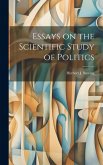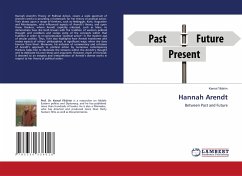This work presents both the range of Arendt's political thought and the patterns of controversy it has elicited. The essays are arranged in six parts around important themes in Arendt's work: totalitarianism and evil; narrative and history; the public world and personal identity; action and power; justice, equality, and democracy; and thinking and judging. Despite such thematic diversity, virtually all the contributors have made an effort to build bridges between interest-driven politics and Arendt's Hellenic/existential politics. Although some are quite critical of the way Arendt develops her theory, most sympathize with her project of rescuing politics from both the foreshortening glance of the philosopher and its assimilation to social and biological processes. This volume treats Arendt's work as an imperfect, somewhat time-bound but still invaluable resource for challenging some of our most tenacious prejudices about what politics is and how to study it. The following eminent Arendt scholars have contributed chapters to this book: Ronald Beiner, Margaret Canovan, Elisabeth Young-Bruehl, Seyla Benhabib, Jürgen Habermas, Hanna Pitkin, and Sheldon Wolin.
Bitte wählen Sie Ihr Anliegen aus.
Rechnungen
Retourenschein anfordern
Bestellstatus
Storno







